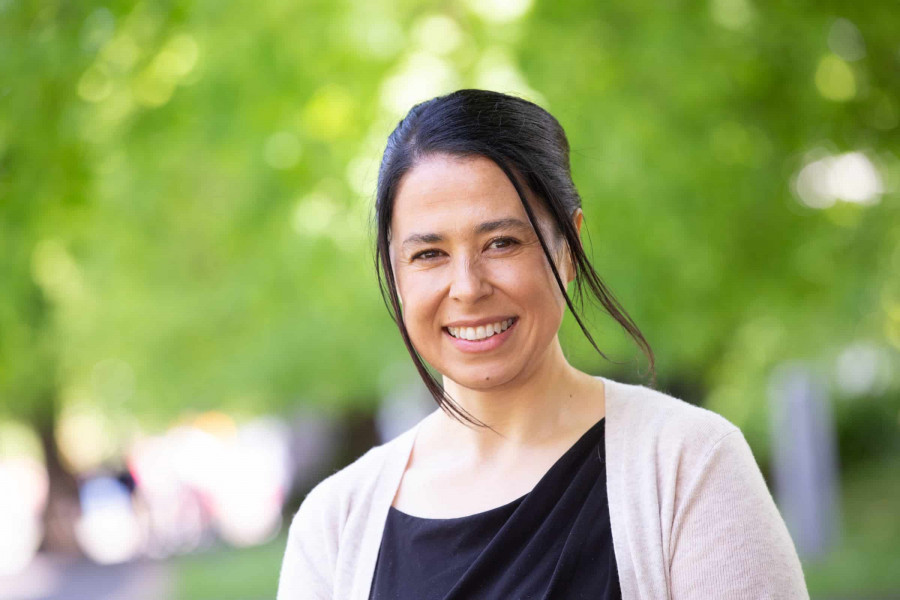Scientist glimpses encouraging STEM future
Scientist glimpses encouraging STEM future

Biomedical Scientist Dr Dianne Sika-Paotonu was a guest presenter at the Ministry for Pacific Peoples (MPP) Central Region Toloa Awards.
When Dr Dianne Sika-Paotonu (CQS MRSNZ) was a child, a family friend died from cancer and feeling deeply saddened at the time, she promised her mum she would one day find a cure.
Fast forward several decades, and the determined youngster is leaving her mark on Pacific Aotearoa as a Biomedical Scientist.
The Associate Dean (Pacific) at the University of Otago, Wellington, has recently won the New Zealand Association of Scientists (NZAS) Cranwell Medal for Science communication for 2020.
Of Tongan heritage, Dr Sika-Paotonu is the first Pacific Biomedical Scientist to receive the award, awarded annually to a practising Scientist for excellence in communicating science to the public in any area of Science or Technology.
Dr Sika-Paotonu has maintained a strong record of public engagement with community groups and with students at all levels since completing her PhD at Malaghan Institute of Medical Research in 2015.
She is the Scientific Lead for New Zealand’s Rheumatic Fever and Penicillin Research Programme and a Senior Lecturer in the Department of Pathology and Molecular Medicine, while also regularly presenting science to non-scientific audiences.
Earlier this year, Dr Sika-Paotonu was a guest presenter at the Ministry for Pacific Peoples (MPP) Central Region Toloa Awards.
The Ministry’s Toloa Programme encourages Pacific people to enter STEM (Science, Technology, Engineering, Mathematics) careers or studies.
“It was a privilege to share words of encouragement with those who were present at the MPP Toloa Awards evening,” Dr Sika-Paotonu says.
“I was particularly heartened and encouraged to catch a glimpse of the future of STEM in Aotearoa, in meeting with the Pacific Toloa Award winners and listening to their experiences and exciting plans for STEM in New Zealand.”
Being able to mentor, teach and support students, researchers and young people from different backgrounds, many of them Pacific, over the years has been hugely rewarding, she adds.
“I’m really encouraged by the increased awareness and recognition of the need for scientists and researchers to share and communicate science effectively and appropriately for various audiences that also includes Māori and Pacific communities, the various classroom settings and the general public audience groups.”
Dr Sika-Paotonu has observed there is a growing understanding of the need for scientists and researchers to become more closely connected and engage appropriately and respectfully with Māori and Pacific communities and other groups to support effective and appropriate dialogue and outreach efforts, she says.
“I want to utilise my training and skills to contribute constructively to society, the scientific, research, education domains, and of course our Pacific and Māori communities.
“I would like to see and support the next generation of students, health professionals and researchers become trained, equipped and empowered to each be leaders within their areas of expertise, contributing to society and affecting positive change for Aotearoa New Zealand and in the Pacific - and beyond.”
Dr Sika-Paotonu is an HRC Pacific Emerging Research Fellow, as well as a recent recipient of the Health Research Council of New Zealand’s Sir Thomas Davis Te Patu Kite Rangi Ariki Health Research Fellowship.
Her awards include the MacDiarmid Young Scientist of the Year (Advancing Human Health and Wellbeing category), Colmar Brunton New Zealand Research Excellence Award, and the Australasian Society of Immunology BD Science Communication award.
She has also received a 2020 Fulbright New Zealand Scholarship, which will allow her to travel to the United States to continue her research into Rheumatic Fever and Rheumatic Heart Disease at Harvard University and the University of Oklahoma.
